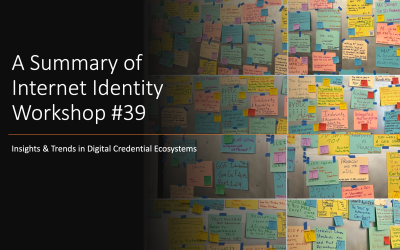Trust registries can quickly become a powerful tool for the discovery of services, including digital credential exchange services.
There’s a common misconception that trust registries are only necessary once digital credentials become widely adopted. However, I think the reality is quite the opposite. Trust registries are not just supporting systems; they are enablers of digital credential adoption.
What is a Trust Registry? In simple terms: Some list of authoritative identifiers that are governed. In the context of digital credentials, when a person presents a credential from their digital identity wallet to a verifier, the verifier might question the legitimacy of the issuing entity behind the credential presented. This is where a trust registry becomes invaluable. It can provide verifiers with the information needed to confirm whether the issuer is authorized by a governing body, under a governance framework.
The Dual Role of Trust Registries. Trust registries serve a dual purpose. Yes, they can be used by entities, such as verifiers, seeking inputs to help them make trust decisions. Secondly, and perhaps more importantly to where we’re at in the adoption cycle of digital credentials: trust registries act as discovery mechanisms. For example, if I’m looking for an authorized auditor for a specific function, a verified auditors list in a trust registry can provide essential information to initiate contact and potentially help me form business connections.
In the digital trust context, this could lead to forming direct connections or requesting credentials to further business processes. Therefore, trust registries are not only useful for making trust decisions during credential exchanges but also serve as powerful tools for decision-making prior to any credential exchange, acting as a strong discovery mechanism.
Investing in trust registries is crucial for the broader adoption of digital credentials – that’s why we’re spending a lot of time at Northern Block building foundational infrastructure for trust registries. They provide the necessary infrastructure for trust decisions and discovery, facilitating smoother and more reliable digital interactions in various business contexts.







